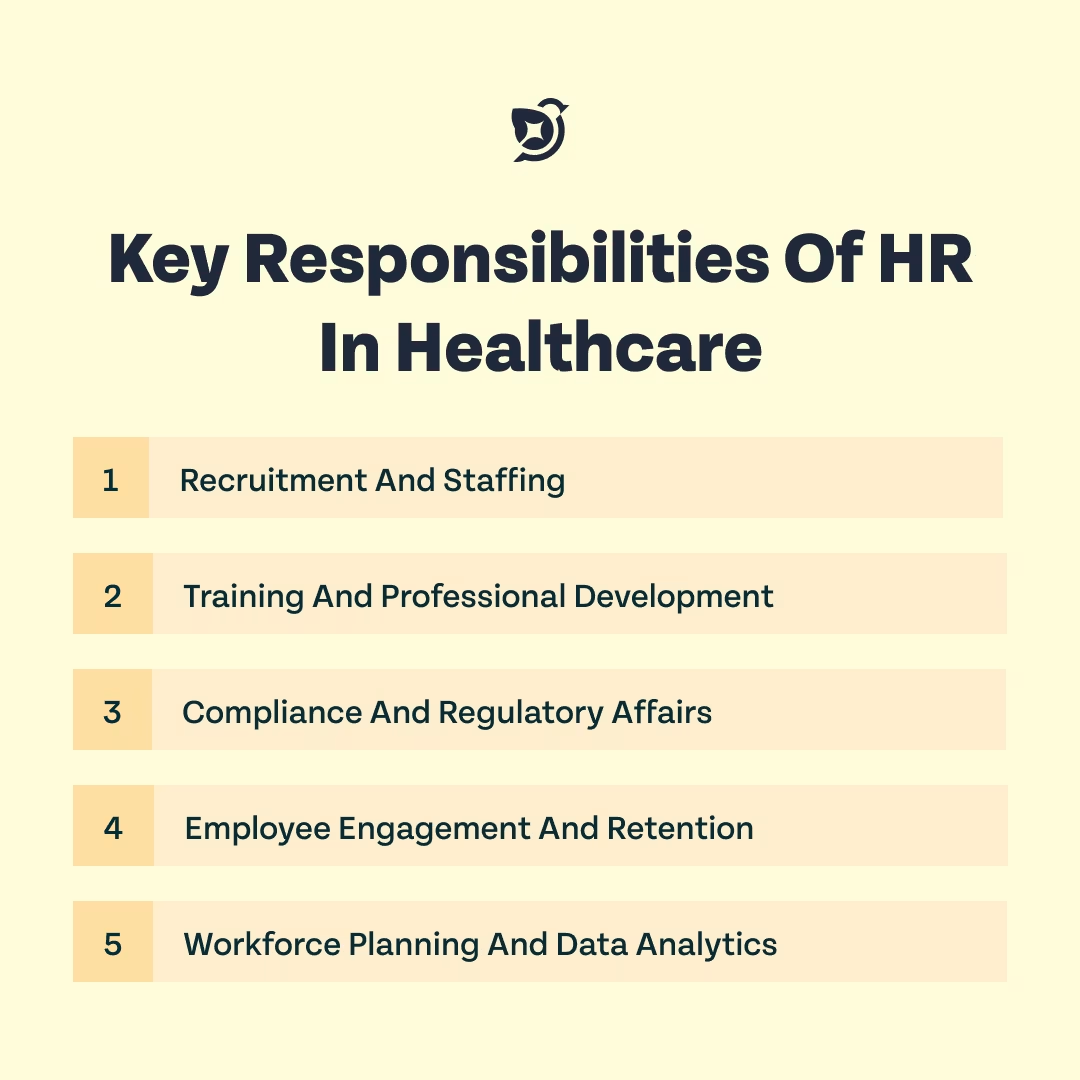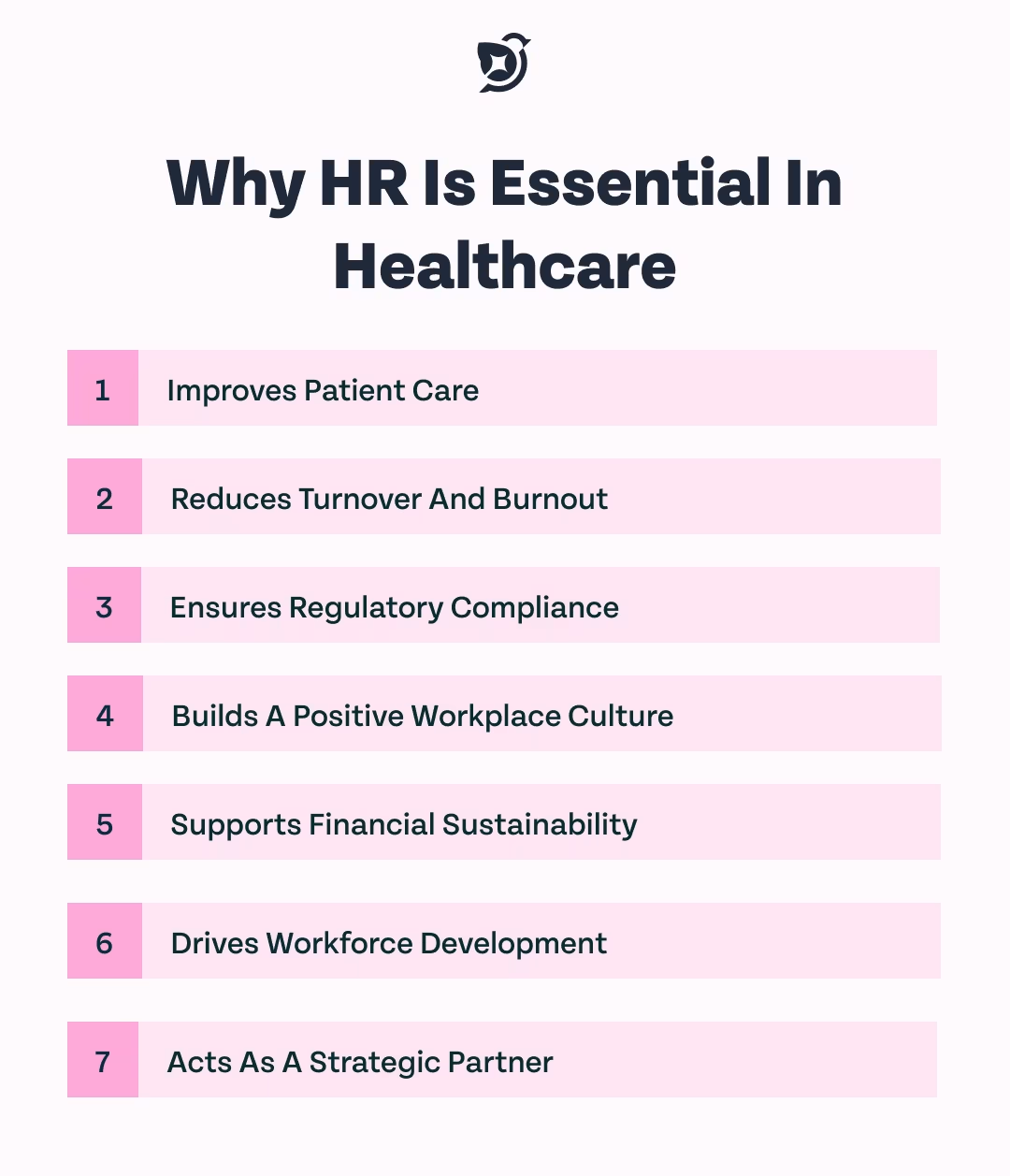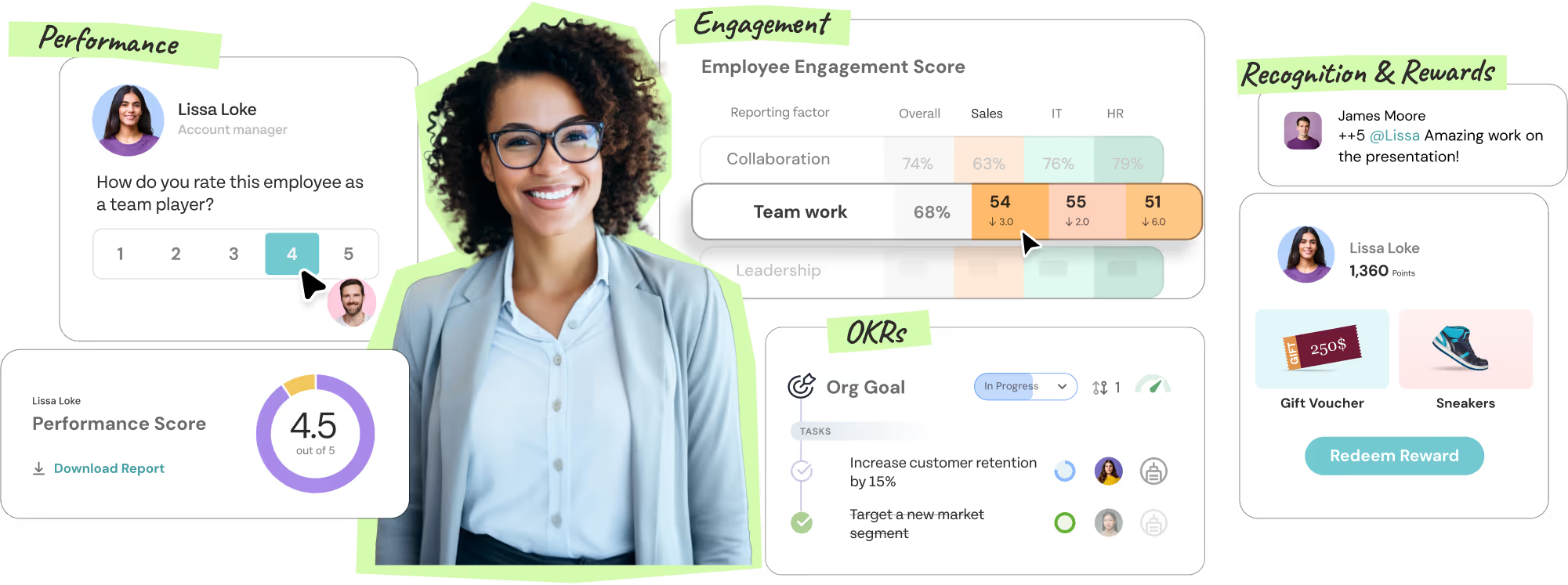Human resources in healthcare isn’t just about hiring or payroll—it’s the backbone that keeps hospitals and clinics running smoothly. Behind every doctor, nurse, and support worker is an HR team making sure the right people are in place, trained, and supported. From recruitment and compliance to engagement and workforce planning, HR plays a strategic role in strengthening staff, improving patient care, and ensuring organizations stay resilient.
This blog explores the role of human resources in healthcare, why it matters, and how HR teams can tackle the industry’s biggest challenges.
What Is Human Resources in Healthcare?
Human resources in healthcare refers to the function that plans, coordinates, and manages the people side of care delivery. This includes recruiting and onboarding staff, managing benefits, resolving workplace issues, ensuring compliance, and driving employee engagement.
Unlike other industries, healthcare HR must balance patient safety, strict regulations, and a diverse workforce made up of clinicians, administrators, and support staff. From 24/7 scheduling to credentialing and training, HR ensures operations run smoothly while maintaining a strong culture of care and support.
Key Responsibilities of HR in Healthcare
HR’s responsibilities in healthcare are wide-ranging and directly tied to patient outcomes. Here are the five key areas where HR makes the biggest impact:
1. Recruitment and Staffing
Attracting and retaining talent is one of HR’s most visible responsibilities. With demand for nurses and specialists often exceeding supply, HR must build strong pipelines, offer competitive compensation, and run efficient hiring processes.
This goes beyond job postings. Effective strategies include partnerships with nursing schools, attending career fairs, and maintaining a pool of temporary or travel nurses. HR also plays a critical role in onboarding — ensuring new hires quickly adapt to policies, safety protocols, and organizational culture.
2. Training and Professional Development
Healthcare is constantly evolving with new technologies, treatments, and regulations. HR ensures staff keep pace through orientation programs, clinical training, and leadership development.
Beyond technical skills, HR promotes professional growth through tuition reimbursement, certifications, and mentorship opportunities. Training also extends to soft skills such as communication, empathy, and teamwork — all of which directly affect patient satisfaction.
3. Compliance and Regulatory Affairs
Healthcare is one of the most heavily regulated industries. HR plays a central role in ensuring compliance with laws such as HIPAA, OSHA, and labor regulations.
This includes managing license renewals, coordinating annual compliance training, and maintaining documentation to reduce risk. HR also works closely with risk management teams to enforce safety standards, investigate incidents, and implement corrective measures that protect both patients and staff.
4. Employee Engagement and Retention
Burnout and turnover remain ongoing challenges in healthcare. HR helps address these by creating environments where staff feel valued and supported.
This can include flexible scheduling, wellness programs, recognition initiatives, and structured career development paths. HR also fosters stronger communication channels between leadership and frontline staff, ensuring issues are surfaced and resolved quickly.
5. Workforce Planning and Data Analytics
Modern HR in healthcare increasingly relies on data. By tracking key metrics such as turnover, vacancy rates, and recruitment timelines, HR can forecast shortages and act before they escalate.
Workforce analytics also highlight departments experiencing high overtime or burnout, enabling proactive staffing adjustments. This data-driven approach not only saves costs but also supports better patient outcomes by ensuring adequate coverage at all times.
👉 Explore our recent blog on: How to Improve Employee Engagement in Healthcare

Why HR Is Essential in Healthcare
HR in healthcare is more than an administrative function — it directly influences both staff wellbeing and patient outcomes. Here are the key reasons why it’s indispensable:
1. Improves Patient Care
Adequate staffing, proper training, and strong support systems reduce errors, improve continuity of care, and increase patient satisfaction. HR ensures the right people are in the right roles and that teams have access to ongoing training and resources. By supporting staff at every stage, HR indirectly but powerfully enhances the quality of patient care.
2. Reduces Turnover and Burnout
Engagement programs, recognition initiatives, and wellness support help retain staff and reduce costly turnover. HR develops strategies to address burnout by offering flexible schedules, employee assistance programs, and opportunities for career growth. These measures not only keep staff motivated but also preserve organizational stability.
3. Ensures Regulatory Compliance
HR keeps policies and training aligned with HIPAA, OSHA, and labor laws, safeguarding both staff and patients. Compliance isn’t just about avoiding fines — it ensures safe environments for employees and trustworthy care for patients. HR also plays a proactive role in monitoring policy changes and implementing timely updates across the organization.
4. Builds a Positive Workplace Culture
Open communication, inclusivity, and recognition foster environments where employees feel valued and motivated. HR creates channels for feedback, ensures diverse perspectives are represented, and promotes recognition programs that build morale. A positive culture helps healthcare organizations retain top talent and boosts team collaboration.
5. Supports Financial Sustainability
Better retention and workforce planning lower recruitment costs and overtime spending, allowing hospitals to reinvest in patient care. HR’s ability to forecast staffing needs and prevent over-reliance on costly agency staff directly impacts the bottom line. This financial stability enables organizations to fund new technologies, facility improvements, and patient services.
6. Drives Workforce Development
Ongoing training and leadership programs ensure staff stay current with evolving practices and standards. HR designs learning pathways that help employees grow professionally, whether in clinical expertise or leadership roles. This investment in development strengthens the workforce and prepares teams to adapt to new challenges.
7. Acts as a Strategic Partner
HR connects leadership with frontline staff, aligning organizational goals with employee needs and patient care priorities. By acting as a bridge, HR ensures decision-making reflects both business objectives and the realities of daily care delivery. This strategic alignment builds trust and drives long-term organizational success.

Challenges and Future Trends for Healthcare HR
Looking ahead, HR leaders in healthcare must navigate several pressing challenges:
1. Rising Demand for Care
An aging population is driving up demand, while many healthcare workers approach retirement — creating serious staffing gaps.
2. Competition for Talent
Hospitals now compete with private practices and telehealth providers. To remain attractive, HR must provide competitive pay, flexible scheduling, and clear growth opportunities.
3. Technology Adoption
Electronic health records, telemedicine, and AI tools are becoming standard. HR must provide training, manage organizational change, and ensure compliance with data privacy laws.
4. Mental Health and Burnout
Long shifts and emotional stress take a heavy toll. HR should prioritize wellness programs, counseling support, and work-life balance initiatives to sustain staff wellbeing.
The Bottom Line
HR in healthcare is not just about managing people — it’s about sustaining care delivery. By strengthening recruitment, compliance, engagement, and workforce planning, HR ensures both employees and patients are supported.
With ThriveSparrow’s people experience platform, HR leaders don’t just manage processes—they can build cultures where healthcare staff feel valued, engaged, and motivated to deliver their best work. From pulse surveys to recognition walls and goal alignment dashboards, ThriveSparrow gives HR the tools to protect staff wellbeing and deliver better patient outcomes.

Try ThriveSparrow free for 14 days — no credit card required.
FAQs
Q1. What does human resources do in a hospital?
Human resources in healthcare handles recruiting, onboarding, training, benefits administration, regulatory compliance, employee relations and workforce planning. HR managers ensure the right people are in the right roles and support staff with policies and resources.
Q2. Why is HR important in healthcare organizations?
HR plays a critical role in patient outcomes by ensuring adequate staffing, continuous training and a positive workplace culture. Effective HR reduces turnover costs, fosters compliance and improves organizational performance.
Q3. How do HR departments address staffing shortages?
HR uses strategies such as partnerships with educational institutions, competitive compensation, flexible scheduling, referral programs and temporary staffing agencies. Workforce analytics help HR anticipate shortages and plan recruitment early.
Q4. What challenges does HR face in healthcare?
Major challenges include high turnover, burnout, regulatory complexity, technological adoption and maintaining a diverse, inclusive culture. HR must also manage changing workforce demographics and adapt to telehealth and digital technologies.
Q5. How can HR improve employee engagement in healthcare?
HR can offer professional development, recognition programs, mentorship, wellness initiatives and open communication channels. Aligning employee goals with organizational mission and providing clear career pathways also enhance engagement and retention.
















